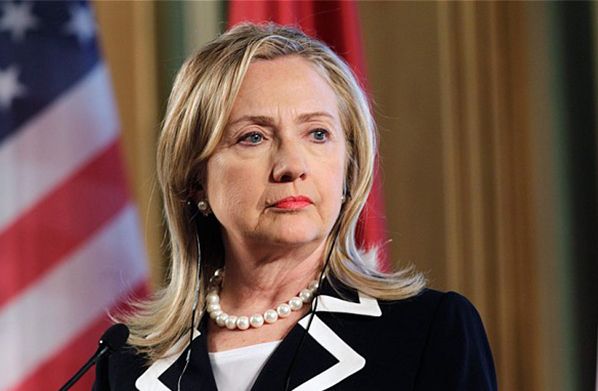Is Hillary Clinton just so 1947?
No, this is not a dig at Mrs. Clinton's maturity but rather an observation about her economic speech delivered earlier this week. Uber-pundit Michael Barone writes:
But laced throughout the sterile verbiage is an assumption that was more widely shared by policy elites and ordinary American voters in 1947, the year Hillary Clinton was born, than it is today, 68 years later. That is the assumption that government is capable of solving just about every problem.
You can understand why that confidence was strong in Clinton's early years. The United States had just won a world war and was facing not the widely predicted resumption of the Depression of the 1930s but the surging postwar prosperity that is still fondly remembered by many.
Clinton, according to Barone, would try to shoehorn today's businesses into the postwar mold where businesses and government worked in tandem with big labor. She worries about the "gig economy" that gives many Americans an income. I think the gig economy troubles her because the government hasn't yet got a handle on regulating it. There is what I call a "war on work" element to the Clinton economic prescriptions:
On top of that, Clinton would expand paid family days and offer more sick leave, increased overtime pay and an ever higher minimum wage — measures that would tend to subsidize or produce non-work in an economy that has the lowest workforce participation in nearly 40 years. She would make "investments in cleaner renewable energy" — Solyndra? — and spend billions on universal pre-kindergarten even though researchers (including the Obama Department of Health and Human Services) say it has no lasting benefit.
Barone concludes:
The problem with Clinton's "paleoliberalism" (columnist David Brooks's term) is that centralized planning just doesn't work. Government is increasingly (political scientist Steven Teles's term) a "kludgeocracy."
The problem for the Republicans who believe that her proposals, including higher tax rates and ever increasing regulation, will discourage growth is that they can't tell us precisely where growth will occur.
We are a more fragmented, personally, economically and culturally diverse country than the culturally conformist America of 1947, in which most adult men had just been mobilized in the military. Policies and approaches that worked then are not likely to work so well now.
I forgot to tell you how Barone, the best political handicapper in the business, begins his column.
He describes Mrs. Clinton as "the single individual most likely to be elected the next president."
She will of course, if Republicans blow it in 2016, and her policies will bring us four to eight more years of economic dysfunction.


